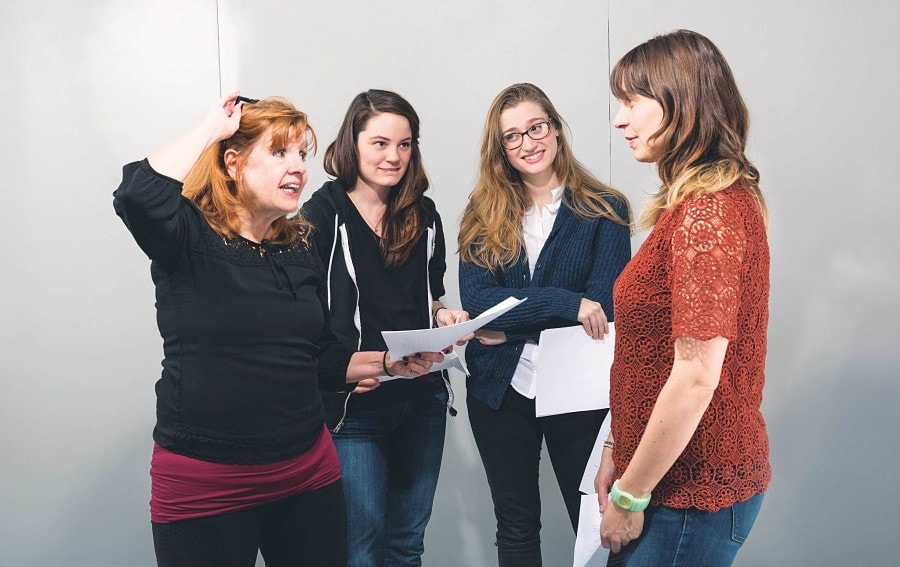NEW YORK CITY: The common refrain of writing teachers the world ’round is, “Write what you know.”
But how does that work when you’re an expatriate? For playwright Alexandra Collier, who is Australian by birth but has lived in the U.S. for the past eight years, writing American characters in American narratives has often been a struggle.
“But then I went on an Erik Ehn silent playwriting retreat,” Collier relates. “On the first day Ehn said to the group, ‘The original meaning of sin is to be outside one’s self. Let’s inhabit ourselves as we work this weekend.’” For Collier, these words had a profound, lightbulb-moment effect. “I thought: I’m literally outside myself, because I’m living somewhere else.”
Over the next few days, a script tumbled forth from Collier’s brain that revolves around two students in a small Australian village, their three teachers, and a businessman from Japan who turns up unexpectedly. Underland, directed by Mia Rovegno, receives a production April 3–25 by terraNOVA Collective at 59E59 in New York City.
“The girls want to get out of their small town, so they start digging a hole to China,” says Collier, describing her plot. The girls’ geography is rather spotty, she admits—especially when a Japanese (as opposed to Chinese) businessman turns up. Meanwhile, a killer crocodile (who may be an undercover character in the play) is on the loose. While Underland doesn’t have a traditional plotline, the story does progress linearly, and the worlds of naturalism and magic realism collide in what Collier refers to as “Chekhov for the Outback.”
Perhaps subconsciously, Collier is keen on upending some of the dearly held myths about her homeland. “People still talk about Crocodile Dundee, even though it came out 30 years ago!” she huffs, pointing out that even though New York City has some 20,000 Australians living in its boroughs—the result of a unique visa agreement between former President Bush and Australian Prime Minister John Howard—it’s still relatively rare to see a new Australian play on an American stage.
So if it’s not all billabongs and walkabouts, what categorizes Australian theatre? “Australian culture and sensibility is different from America—we’re bleaker and more epic,” Collier says. “We have a more self-effacing view of ourselves in the world, which comes from our colonial heritage. Americans have more self-confidence.”


